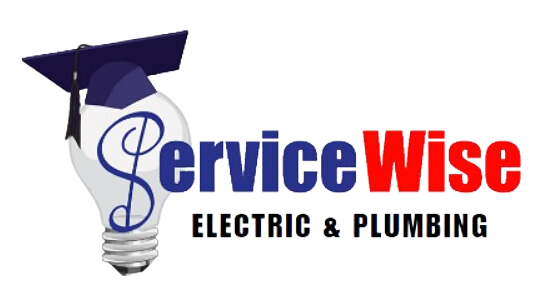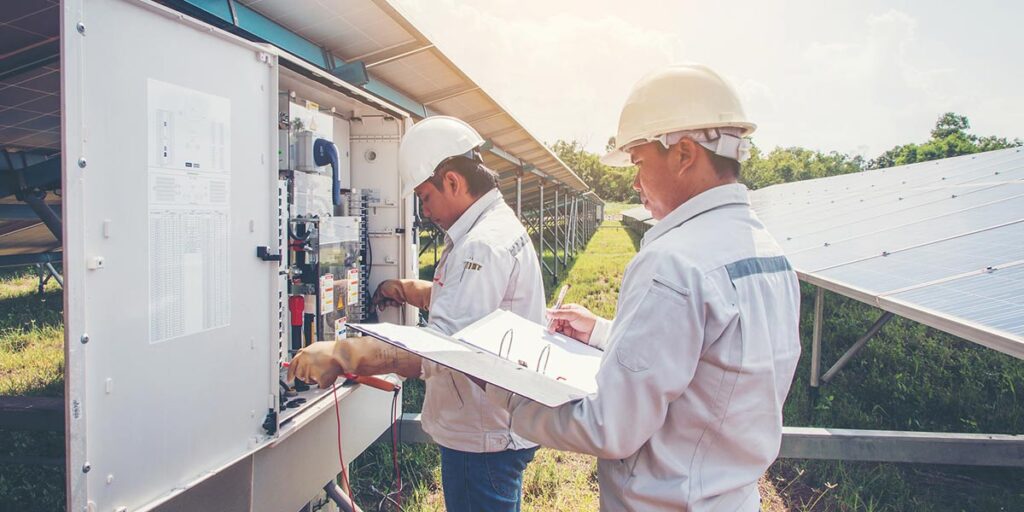Electrician and Electrical Contractor: What’s the Difference?
When it comes to an electrician and an electrical contractor, you may be thinking: what’s the difference? Find out what you need to know about it today.
With a job growth rate exceeding 2%, the electrical industry is huge. So, at some point, you’re going to need electrical work completed at your home or business. But, is an electrician or electrical contractor better to do the job?
Sure, you want someone to complete your job safely, but who is more appropriate? Is one under qualified compared to the other? Can they both perform the same tasks? Read on to learn the difference between electricians and electrical contractors. And which to use nearby Cherokee County Georgia.
The Difference Between an Electrician and an Electrical Contractor
Obviously, both of these jobs do electrical work. Yet, what they’re capable of working with can differ greatly.
An electrician is a person who is trained and has a license to carry out electrical work. An electrical contractor employs an electrician.
An electrician who seeks to be self-employed needs to become an electrical contractor.
What is an Electrician?
Electricians have different classifications:
- Apprentice – is in an electrical apprenticeship program
- Journeyman – has completed the apprenticeship program
- Master Electrician – has completed an apprenticeship program. And, has completed the journeyman training, undergone further training, and has adequate experience
Electricians can work as outside linesmen or as inside wiremen.
Outside Linesmen
Outside linesmen work outside for most of their careers. They work on power poles and often work for government organizations. These electricians need to be:
- Comfortable with heights
- Have a certain fitness level
They are often required to scale power poles and transformers.
As they primarily work outdoors, outside linesmen have to deal with bad weather. These are the guys that come to fix power outages during storms.
They also repair and build electric substations under the supervision of a contractor. They may also need to trim trees or clear debris on top of the actual electrical work they have to do.
Inside Wiremen
If outside linesmen work outdoors, you can probably guess the type of work an inside wireman does. It’s all in the name. They wire up the insides of homes, retail, and commercial properties and buildings.
They can be involved in new builds. They may also have to replace old and dangerous existing wiring. A third possible job for them is troubleshooting minor issues.
An inside wireman often has to work in enclosed areas. these can include crawl spaces, wall gaps, and anywhere faulty wiring may exist. The poor young apprentices often have to complete the work in awkward spaces. This is because they’re usually smaller and more flexible. Especially compared to their older master electricians or electrical contractors.
Service Vs. Construction
Electricians usually have to choose one of two directions to take their career.
Service electricians focus on repairs, troubleshooting issues, and conducting routine maintenance.
Construction electricians work with builders and other contractors. They work on new buildings in the residential or commercial sector.
It’s not often that electricians frequently work in both of these fields. But, an electrical contractor may have more experience working across industries. They usually have a lot of extra training behind them to span the industries.
What is an Electrical Contractor?
An electrical contractor started off as an electrician but has undergone further training. They’ve established a business or firm, and performed specialized work. Contractor construction work usually involves the design, installation, and maintenance of electrical systems.
Electrical contractors ensure that different electrical systems work effectively and safely. Whether high voltage power transmission or low voltage lighting, they’ve got you covered.
There is a classification of electrical contractors according to the work they do. Below is a rundown of the electrical contractors’ classifications.
- Outside or line electrical contractors
Outside or line contractors are concerned with high voltage power transmission. They also deal with distribution lines. They make sure the power from the plant reaches homes and businesses safely. They do so by working with high-voltage lines and substations.
- Inside Electrical Contractors
Inside electrical contractors perform electrical and cabling design. They also work with installation and maintenance. This applies to any type of building, be it commercial, institutional, or residential.
- Integrated Building Systems (IBS) or Voice/Data/Video(VDV) Electrical Contractors
IBS or VDV Electrical contractors deal with low-voltage installations such as;
- Wireless networks
- Telecommunications
- Fibre-optics
- Back-up power
- Energy-saving lighting
- Climate controls
- Security
IBS Electrical Contractors mainly focus on energy efficiency and improving performance.
The electrical contractor’s role in construction is broad. Apart from the physical labor, they work alongside property owners, architects, and consultants.
An electrical contractor is tasked with choosing which products to use. Then the work on the design and implementation of the electrical systems. They are viewed as fundamental partners in construction projects.
Independent Electrical Contractor
To be an independent electrical contractor in Georgia, they must prove their capabilities. They must complete four years of training while working under an electric contractor. Then, they become liable to sit for the electrical contractor’s exam.
Electrical Contractor License
There are two types of Electrical Contractor Licenses in Georgia; Class I and Class II.
- Class I license has restrictions. The electrical contractor is restricted to installing a single phase of 200 amperes.
- Class II license has no restrictions whatsoever.
An electrical contractor can use either of these two licenses to operate in Georgia.
Should I Seek the Services of an Electrician or an Electrical Contractor?
In Georgia, most employers need electricians to complete four years of on-the-job training. They also need an extra 180 hours of classroom learning to work independently.
They need to take precautions because electrical systems are dangerous. So, they need to be handled by experienced professionals.
An electrical contractor is very experienced. So, you can be assured of their services being of a high standard. They must complete four years working under another electrical contractor.
They also have to sit for the relevant exam. Then, the Georgia Board of Electrical Contractors awards them the Electronic Contractor license.
Electrical contractors are more sophisticated and have more roles. But, you cannot wholly dismiss an electrician. After all, an electrical contractor was once an electrician. You might also need an electrician to deal with an electrical emergency.
Commercial Electrical Contractor
Commercial Electrical Contractors are responsible for safety compliance. They also look after the proper finishing of commercial electrical installation. One of the best electrical contractors to use in Georgia is us at Service Wise Electric.
Qualities of the Best Commercial Electrical Contractors
Here is a list of certain qualities you should identify to pick a quality contractor for your job.
Experience and knowledge – Commercial electrical work can be complex. There is a need for professionals to be absolute experts.
- Licensing and insurance – Insurance policies are mandatory to cover incidents. But, you should check their licensing. Just to confirm the qualification of your electrical contractor.
- Dependability – As a business owner, you should hire someone who can arrive on time. You also need to be able to trust them to deliver the appropriate services to a high standard.
- Attention to detail – Aside from commercial electrical work being complex, it is hazardous. You need professionals who are highly cautious while working as commercial electrical contractors.
- Consistency – An electrical project needs to maintain a high level of craft. There is no room for slacking or shoddy work if the final product is to be safe and functional.
- Comprehensive services – You’ll need upgrades, repairs, and maintenance for your electrical systems. So electrical contractors need to be capable of establishing a long-term relationship. This comes in handy when you need services during an emergency.
Electrical Contractors Near Me
You have now learned about the difference between an electrician and an electrical contractor. you need to find the electrical contractors nearby. Below is a list of the different counties that we service
- Cherokee County Georgia
- Woodstock Georgia
- Canton Georgia
- Jasper Georgia
- Ball Ground Georgia
- Holly Springs Georgia
- Acworth Georgia
Just a reminder, an electrician is an individual electrical tradesman while an electrical contractor employs several electricians to implement his electrical system designs.
An electrical contractor may send one of their employees (an electrician) to complete the job for them. Part of an electrical contractor who owns a more significant commercial or residential business’ position is to delegate tasks to others who have the appropriate qualifications to complete the job safely.
Where to Go From Here
Now that you know the difference between an electrical contractor and an electrician, you can be able to make an informed decision when seeking electrical services.
Notably, Service Wise Electric is an Electrical Contractor available in all the above Georgia counties. You can book an appointment now for all your commercial and residential electrical contractor needs.


